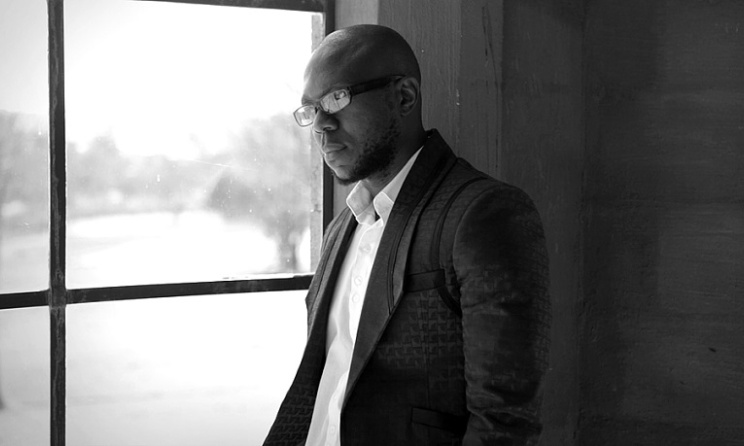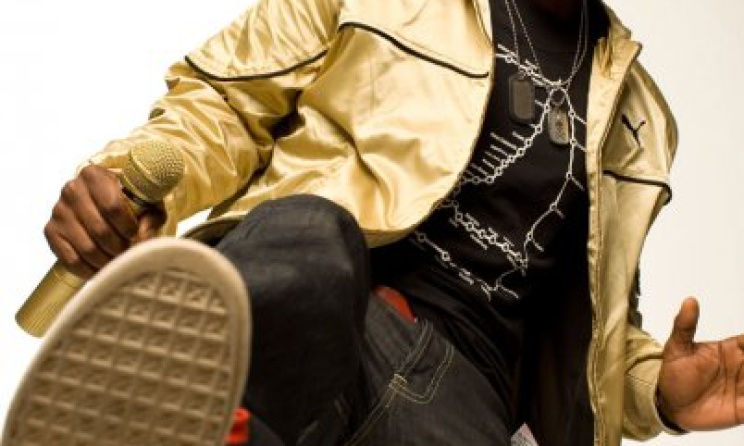Interview: Zubz
Zubz’s role in South African hip-hop has been that of a lyricist who engages the listener beyond the hackneyed tropes of bootie, clubs, and bling. His songs have explored such disparate topics as polygamous relationships (‘Handiende’), football (‘Premier emcee’), and xenophobia (‘Time to heal’); every subject has received unscrupulous inspection by the man holding the golden mic.
 Zubz
Zubz Zubz
Zubz
Ten years since the release of his debut offering Listener’s Digest, we decided to pick Zubz’s (Ndabenga Mabunye to his mother) brain on some songs on the album.
During the process of recording Listener’s Digest, the hard drive crashed and you lost all the songs. Please tell us about the events that followed.
Zubz: Yeah, that was an insane time. A lot of it I can’t remember; there are patches of it in my brain that are just blocked, I guess I don’t really want to go there. The hard drive crashed, I had a whole bunch of joints that I’d done – a lot of them were album tracks. We lost all of that! And immediately after that happened, I lost my father. I had to go to Zambia to bury him. And, those chunks of my life, right now, I can’t even tell you man… it’s a blur. I just remember I got back from burying my dad, jumped into the studio, tried to re-create some songs… that didn’t work out. We ended up writing new songs, and that worked better. And eventually, we had an album! I really think that, in a lot of ways, that album was done with me kinda being vacant; it was written by proper inspiration. Which is why, for me I guess, it’s always been one of my favourites.
For real?
Zubz: Yeah, because of the emotional stuff I was going through, the serendipitous events that were happening around this record. So you know, it was an interesting time. And I’m blessed because it ended up becoming something classic.
For the song ‘Heavy 8’, you had artists coming into the studio and recording verses without hearing what the other featured acts had done. Where did that idea come from?
Zubz: For me, every album should have a special moment, and when you collaborate with somebody, it should be a special moment. So I wanted to put rappers on, but I never wanted to do a song with rappers. I’ve never really been that guy on albums where I do a track and I say “this is Zubz featuring HHP”. I do that on mixtapes and feature singles. On an album, I always put rappers on with a twist, and that’s the twist I needed for the first record.
And it’s gone on to become one of the greatest hip hop collaborations of all time! I feel like I can actually say that because it has stood the test of time. The concept was simple: track number eight, spit eight bars, and put eight emcees on it. The execution was even simpler: you don’t have to think about it, you don’t have to go home, no concept or topic to rhyme around, just get your eight bars, here’s the beat, go! Who cares who’s on it?! Who cares what the person before or after you says… rhyme!
On songs such as ‘I’m Here’ you took the theme of a long-distance love affair and turned that into a beautiful narrative by re-enacting a phone call. Was it inspired by real events?
Zubz: At that point, I wasn’t even an artist, I was a channel. And I do that a lot sometimes when I want to depict something that is pretty much a burden on my soul, something that is very important and dear to me. “I’m Here” is about being a foreigner; it’s about having to call your people back home and tell them “yo, I still haven’t got a job”. So there were social issues, love issues. What inspired me was just my day-to-day living, being stopped by the cops, seeing some of my fellow Zimbabweans really having to hustle hard to put food on their families’ tables back home.
It was about the regular man on the streets of South Africa having to travel. Egoli is known for being a city built on migrant labour, and everybody can relate to having to call home and being like, “I’m still grinding, I remember you and I love you, and I’m gonna send you money”. Long-distance relationships can come in two forms: having to take care of family, or that my girlfriend stays on the other side of the globe and we gotta nurture this love. Both of those elements needed to come out strongly in that song. And of course Pebbles did it justice, like she always does. Every single song I’ve had with Pebbles, on every album, has been a monster.
And then there was “Handiende” which featured [fashion designer] Palesa Mokubung. What did that song represent?
Zubz: Well, we all think that love is a one-dimensional, simple thing. If you love somebody, that’s your person, and you’ll be loved and live happily ever after. It’s kind of the notion we are sold in the mainstream media, and society is given that notion of love. But in reality, love is a lot more complex; love can be a lot more tricky to navigate. One of my friends… well, she ended up becoming my friend a bit later, she was like, when that album came out, they played “Handiende” so much with her husband that when he decided to break up with her, he played the song.
These are the stories that happen between two people who are in love. And it’s not that easy, it’s a very grey conversation. And that was the message that “Handiende” was supposed to portray. Sometimes a dude finds himself in a situation, but he won’t be a douchebag and have an affair on the side. He’ll come to you, tell you the deal, and suggest things… things like I think you should leave, I think I don’t deserve you, I think you deserve better. The converse side to that song was that the lady was even willing to stay, to accept wife number two into the household. To some people it’s unheard of, but trust me, it’s a daily occurrence in a lot of places. So for me, I felt like it was necessary to portray Zubz in that light, that real crude, sometimes-vulgar light.
Palesa Mokubung at the time was dating a Zimbabwean dude… I think it was a dude, you never know. So it was easier for me to teach her the chorus because she could wrap her tongue around these words… I think she would hear them on occasion. So I taught her the words, she wasn’t really good at saying them at first, but she did an amazing job. She has since blown up to become one of SA’s most notable fashion designers.
Who is the original artist that did the song?
Zubz: The artist is called Steve Makoni, but another rendition was done by Oliver Mtukudzi as well.
You collaborated with Pops Mohammed on the album. How did that come about?
Zubz: Pops Mohammed used to stay down the road from our office, and he used to do a lot of things at Black Rage productions at the time. So I told Pops that “I’d love to have you on my debut album”. And he was like “I’m literally just a phone call away”. And just like that, Battlekat produced the skeletal beats, Pops took it home, re-arranged it, and played every other instrument on there. I got Geno (formerly of Optical Illusion) to sing the chorus. I loved it so much that I transcribed those lyrics and put them in the artwork. Every time a song touches me like that, I always put it as the last song on the album. And it was the beginning of many collaborations with Pops. And we’ve gone on to build not only a beautiful relationship in our careers, but also a beautiful friendship.




















Comments
Log in or register to post comments